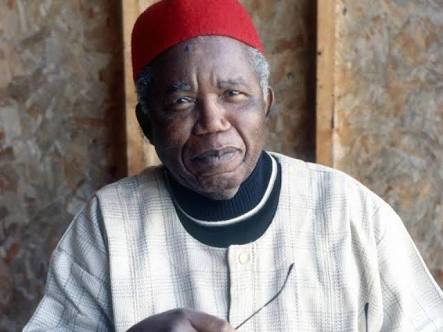History & Records
Chinua Achebe’s 86th Posthumous Birthday Is Today
Chinua Achebe born Albert Chinụalụmọgụ Achebe; 16 November 1930 – 21 March 2013) was a Nigerian novelist, poet, professor, and critic. His first novel Things Fall Apart (1958) is also considered his magnum opus, and is the most widely read book in modern African literature.
Raised by his parents in the Igbo town of Ogidi in South-Eastern Nigeria, Achebe excelled at school and won a scholarship to study medicine, but changed his studies to English literature at University College (now the University of Ibadan).[5] He became fascinated with world religions and traditional African cultures, and began writing stories as a university student. After graduation, he worked for the Nigerian Broadcasting Service (NBS) and soon moved to the metropolis of Lagos. He gained worldwide attention for his novel, Things Fall Apart in the late 1950s; his later novels include No Longer at Ease (1960), Arrow of God (1964), A Man of the People (1966), and Anthills of the Savannah (1987). Achebe wrote his novels in English and defended the use of English, a “language of colonisers”, in African literature. In 1975, his lecture An Image of Africa: Racism in Conrad’s “Heart of Darkness” featured a famous criticism of Joseph Conrad as “a thoroughgoing racist”; it was later published in The Massachusetts Review amid some controversy.
When the region of Biafra broke away from Nigeria in 1967, Achebe became a supporter of Biafran independence and acted as ambassador for the people of the new nation. The war ravaged the populace, and as starvation and violence took its toll, he appealed to the people of Europe and the Americas for aid. When the Nigerian government retook the region in 1970, he involved himself in political parties but soon resigned due to frustration over the corruption and elitism he witnessed. He lived in the United States for several years in the 1970s, and returned to the U.S. in 1990 after a car accident left him partially disabled.
A titled Igbo chieftain himself, Achebe’s novels focus on the traditions of Igbo society, the effect of Christian influences, and the clash of Western and traditional African values during and after the colonial era. His style relies heavily on the Igbo oral tradition, and combines straightforward narration with representations of folk stories, proverbs, and oratory. He also published a number of short stories, children’s books, and essay collections.
Upon his return to the United States in 1990, he began an eighteen-year tenure at Bard College as the Charles P. Stevenson Professor of Languages and Literature. From 2009 until his death, he served as David and Marianna Fisher University Professor and Professor of Africana Studies at Brown University.
Follow us on social media:-

 News1 day ago
News1 day agoMany residents are now fleeing Zamfara communities following bandit Kingpin Turji’s threats
-

 Lifestyle12 hours ago
Lifestyle12 hours ago“God created you uniquely beautiful and you must not allow anybody to lure and break your virgin!ty until you marry” – Church advises, honours 20 girls for keeping their virgin!ty
-

 Celebrity Gossip & Gist1 day ago
Celebrity Gossip & Gist1 day ago“I owe them nothing, na my money make everybody find their own” – Cubana Chief Priest reacts as Burna Boy changes the story of his alleged younger brother
-

 News1 day ago
News1 day agoPolice arrest woman for abandoning newborn in Abuja over hardship








